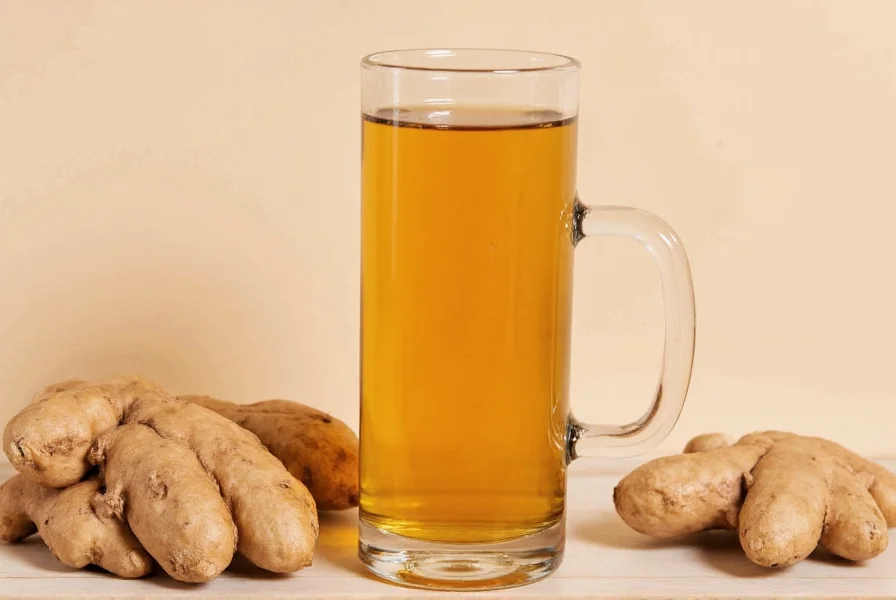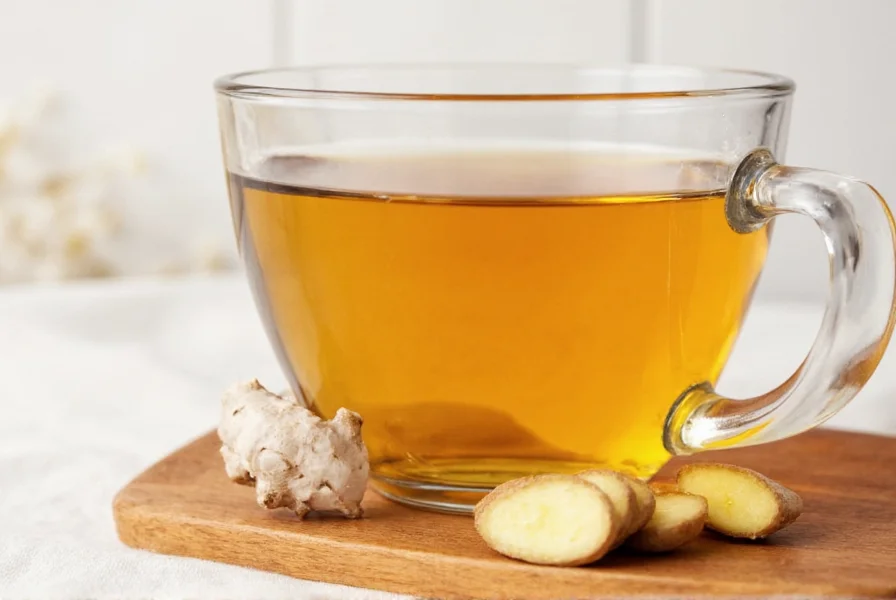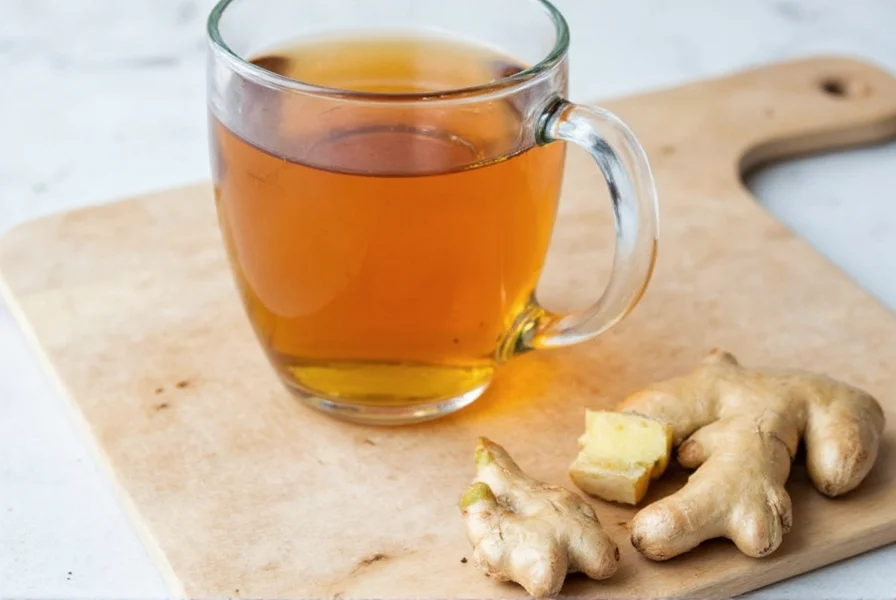If you've ever wondered how to make tea with ginger that's both flavorful and beneficial, you're in the right place. Fresh ginger tea is one of the easiest herbal infusions to prepare at home, requiring minimal ingredients and equipment while delivering maximum health benefits. Whether you're seeking relief from an upset stomach, looking to boost your immune system, or simply want a caffeine-free alternative to traditional teas, this guide provides everything you need to create the perfect cup.
Why Ginger Tea Deserves a Place in Your Daily Routine
Ginger tea isn't just comforting—it's scientifically backed for its health properties. The active compound in ginger, gingerol, has powerful anti-inflammatory and antioxidant effects. Regular consumption may help with:
- Relieving nausea and digestive discomfort
- Reducing muscle pain and soreness
- Lowering blood sugar levels
- Boosting immune function
- Improving circulation
Essential Ingredients and Equipment for Perfect Ginger Tea
Before you start making tea with fresh ginger, gather these simple items:
| Category | Items Needed |
|---|---|
| Core Ingredients | Fresh ginger root (1-2 inches), filtered water (2 cups) |
| Optional Additions | Honey, lemon slices, mint leaves, cinnamon stick |
| Equipment | Small saucepan, vegetable peeler or spoon, fine mesh strainer, mug |

Step-by-Step Guide to Making Ginger Tea
Follow these straightforward steps for the best way to prepare ginger tea at home:
- Prepare the ginger: Wash 1-2 inches of fresh ginger root. Use a spoon to gently scrape off the thin skin (this preserves more gingerol than peeling).
- Slice or grate: For stronger tea, thinly slice the ginger. For milder flavor, grate it instead.
- Boil water with ginger: Add ginger to 2 cups of cold water in a small saucepan. Bring to a boil, then reduce heat and simmer for 10-15 minutes (longer for stronger tea).
- Strain and serve: Pour through a fine mesh strainer into your mug. Add honey, lemon, or other flavorings as desired.
Expert Tips for Superior Ginger Tea
Professional tea makers recommend these techniques when you're learning how to make fresh ginger tea:
- Use cold-start water: Adding ginger to cold water and bringing it to a boil extracts more flavor compounds than adding to already boiling water
- Adjust strength: For a milder tea, use 8 minutes of simmering; for medicinal strength, go up to 20 minutes
- Preserve nutrients: Never boil ginger tea vigorously—gentle simmering preserves more beneficial compounds
- Enhance absorption: Add a squeeze of lemon or a pinch of black pepper to increase bioavailability of ginger's active compounds
Delicious Variations to Try
Once you've mastered the basic ginger tea recipe for beginners, experiment with these popular variations:
- Ginger-Lemon-Honey Tea: Add 1 tablespoon honey and 2 lemon slices during the last 2 minutes of simmering
- Spiced Ginger Tea: Include a cinnamon stick, 2 cardamom pods, and 1 star anise during simmering
- Ginger-Mint Tea: Add 5-6 fresh mint leaves in the last 5 minutes
- Cold-Buster Tea: Combine with turmeric, black pepper, and a dash of cayenne

Common Mistakes to Avoid When Making Ginger Tea
Even the simplest ginger tea recipe can go wrong if you make these common errors:
- Using old ginger: Fresh ginger should feel firm and heavy for its size. Wrinkled ginger produces weaker tea
- Over-boiling: Boiling too vigorously evaporates volatile compounds that provide flavor and benefits
- Adding honey to boiling water: This destroys honey's beneficial enzymes—always add after straining
- Using ginger powder instead of fresh: Powdered ginger lacks the same potency and fresh flavor profile
When to Drink Ginger Tea for Maximum Benefits
The timing of your ginger tea consumption affects its benefits:
- Morning: Drink before breakfast to stimulate digestion and metabolism
- After meals: Helps with digestion and reduces bloating
- Before bed: Can promote relaxation (avoid if sensitive to ginger's mild stimulating effect)
- At first sign of illness: Increases when experiencing cold or flu symptoms
Frequently Asked Questions About Making Ginger Tea
How much ginger should I use for one cup of tea?
For a single serving, use ½ to 1 inch of fresh ginger root per cup of water. If you're making tea for digestion issues, use the higher amount. For a milder flavor, especially for children, use less. Remember that older ginger tends to be more potent than younger ginger.
Can I reuse ginger for multiple tea batches?
Yes, you can reuse ginger root for 2-3 batches of tea. After the first brewing, store the used ginger in an airtight container in the refrigerator. Each subsequent batch will be milder, so increase the simmering time by 5 minutes for each reuse. Discard when the ginger no longer produces noticeable flavor.
How long does homemade ginger tea stay fresh?
Freshly made ginger tea keeps well in the refrigerator for 3-4 days when stored in a sealed container. For longer storage, freeze in ice cube trays then transfer to freezer bags—these ginger tea cubes can be used for up to 3 months. Avoid storing ginger tea at room temperature for more than 2 hours.
Is it better to slice or grate ginger for tea?
Slicing creates a milder tea with more subtle flavor, while grating releases more gingerol for a stronger, spicier tea. If you're using ginger for medicinal purposes like nausea relief, grating is preferable. For everyday drinking, slicing provides a more balanced flavor. The choice ultimately depends on your taste preference and intended use.
Can I make ginger tea without boiling water?
Yes, you can make cold-brew ginger tea by thinly slicing ginger and steeping it in cold water for 12-24 hours in the refrigerator. This method produces a less spicy, more refreshing tea that retains different compounds than hot-brewed tea. Cold-brewed ginger tea is excellent for hot days or if you prefer a milder flavor profile.











 浙公网安备
33010002000092号
浙公网安备
33010002000092号 浙B2-20120091-4
浙B2-20120091-4